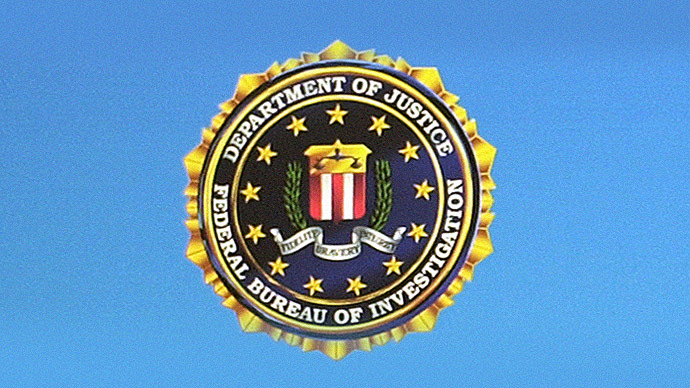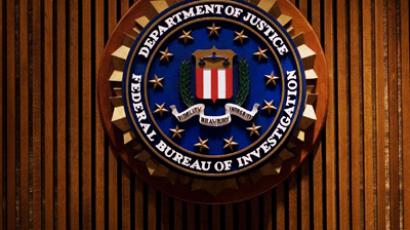Burglars who robbed the FBI finally come forward after 42 years

Almost 43 years after the fact, a group of Vietnam War-era activists now admit to breaking into a Federal Bureau of Investigation office in the early '70s and taking documents that exposed illegal tactics used by the FBI against Americans.
The identities of those in the so-called Citizens’ Committee to Investigate the FBI had been unknown to the public for more than four decades. Five of those eight individuals are named in a book published this Tuesday by Washington Post reporter Betty Medsger, however, and for the first time some of them are finally starting to speak up about an incident that helped turn the FBI on its ear and end the questionable and often unlawful operations the bureau had been waging against anti-war activists and others from the far-left deemed “radical” by the United States government.
Many of the details surrounding the actual incident and the information uncovered in the break-in have been reported during the last several decades, but Medsger writes for the first time in The Burglary information about the culprits that has been kept under wraps until now.
In conjunction with the release of Medsger’s book this week, several members of the Citizens’ Committee are now speaking openly about the March 8, 1971 break-in outside of Philadelphia and the effect they achieved by leaking pilfered files to reporters.
Medsger was working for the Post at the time of the break-in and covered the ordeal then. Only decades later, though, did she learn the identities of the people who exposed, among other programs, the FBI’s controversial and since aborted COINTELPRO, or “counter intelligence program.”
“When you talked to people outside the movement about what the FBI was doing, nobody wanted to believe it,” one of the burglars, Keith Forsyth, just recently told the New York Times after deciding to go public. “There was only one way to convince people that it was true, and that was to get it in their handwriting.”
After an FBI satellite office outside of Philadelphia, PA in the town of Media was burglarized, the “Committee” rendezvoused one hour away in a farmhouse and began scouring the pages of the hundreds of stolen documents. Soon they spotted evidence that the FBI was attempting to discredit and disrupt political groups by seemingly any way possible and sent the proof to reporters, including Medsger. Among those documents were proof of COINTELPRO and evidence that the government aimed to “enhance the paranoia” within activist communities and “get the point across there is an FBI agent behind every mailbox.”
News reports based off of those materials trickled down for years, and in 1976 members of Congress led by Sen. Frank Church (D-Idaho) convened to investigate the FBI’s tactics and eventually rein them in.
Without the work of the previous unidentified individuals of the Citizens’ Committee, however, that reform may never have occurred. Or worse — the US may never had known that the FBI was trying to infiltrate political groups or destroy their organizations from the inside.
“We did it … because somebody had to do it,” one of the burglars — 80-year-old former Temple University religion professor John Raines — told NBC News in an interview made public on Tuesday. “In this case, by breaking a law -- entering, removing files -- we exposed a crime that was going on. … When we are denied the information we need to have to act as citizens, then we have a right to do what we did.”
Raines is only now admitting to his role in one of the most important break-ins of the twentieth century, and tells reporters that with seven others he helped plot the burglary by casing the FBI building and learning everything there was to know about the vicinity and those who lived and worked there.
“We knew when people came home from work, when their lights went out, when they went to bed, when they woke up in the morning,” Raines told the New York Times for an article published on Tuesday. “We were quite certain that we understood the nightly activities in and around that building.”
In order to learn information about the inside of the Media facility, though, the group relied on the professor’s wife, Bonnie Raines, who arranged for a meeting with federal officials ahead of the break-in under the guise that she was researching information about careers for women within the FBI. Unbeknownst to the agents, however, she became intimate with the inside of the building and helped plot the caper.
“I tried to disguise my appearance as much as I could,” she recently recalled to NBC. “I had long, dark, hippie hair at that time and I stuffed it up inside of a winter hat.” She also says she never once removed her gloves during the encounter in an effort to keep from leaving fingerprints.
J. Edgar Hoover was nearing the end of his tenure atop the FBI at the time of the burglary, but nonetheless assembled a task force of nearly 200 people to — unsuccessfully — investigate the ordeal. The supposed college student who made her way into the building was the biggest lead investigators had to work with, but in the end they were unable to make any arrests.
The statute of limitations surrounding the crime has since been expired for decades, but only now are Raines and their Committee colleagues speaking up.
“We didn’t need attention, because we had done what needed to be done,” Mr. Raines told the Times. “The ’60s were over. We didn’t have to hold on to what we did back then.”













